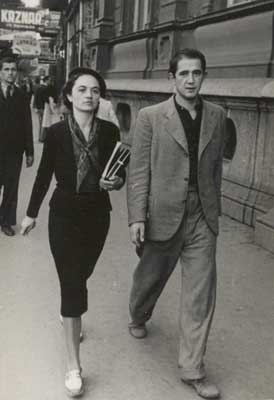



Author of more than twenty books translated and published abroad, ranging from political analysis and memoirs to novels and shorts stories, Djilas never truly gave up the ideals of the young talented writer he was in the early 1930s when he joined the communists. A noted reformist since Tito-Stalin split in 1948 and political prisoner (1956–1961, 1962–1966), Djilas was deprived from all public activity in his country until the end of communist rule. Once a highly ranked communist and revolutionary of Tito’s antifascist partisan army in the Second World War Yugoslavia, Milovan Djilas (1911–1995) became widely known as one of the most important dissident figures in Eastern Europe. The aim of this article is to examine the political ideas of Milovan Djilas (1911–1995) developed in his dissident period (1954–1989).


 0 kommentar(er)
0 kommentar(er)
